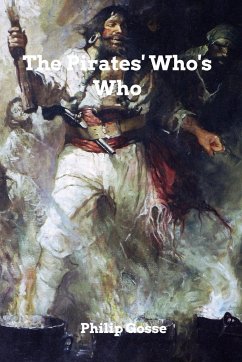To write a whole history of piracy would be a great undertaking, but a very interesting one. Piracy must have begun in the far, dim ages, and perhaps when some naked savage, paddling himself across a tropical river, met with another adventurer on a better tree-trunk, or carrying a bigger bunch of bananas, the first act of piracy was committed. Indeed, piracy must surely be the third oldest profession in the world, if we give the honour of the second place to the ancient craft of healing. If such a history were to include the whole of piracy, it would have to refer to the Phoenicians, to the Mediterranean sea-rovers of the days of Rome, who, had they but known it, held the future destiny of the world in their grasp when they, a handful of pirates, took prisoner the young Julius Caesar, to ransom him and afterwards to be caught and crucified by him. The Arabs in the Red Sea were for many years past-masters of the art of piracy, as were the Barbary corsairs of Algiers and Tunis, who made the Mediterranean a place of danger for many generations of seamen. All this while the Chinese and Malays were active pirates, while the Pirate coast of the Persian Gulf was feared by all mariners. Then arose the great period, beginning in the reign of Henry VIII., advancing with rapid strides during the adventurous years of Queen Elizabeth, when many West of England squires were wont to sell their estates and invest all in a ship in which to go cruising on the Spanish Main, in the hope of taking a rich Spanish galleon homeward bound from Cartagena and Porto Bello, deep laden with the riches of Peru and Mexico.
Hinweis: Dieser Artikel kann nur an eine deutsche Lieferadresse ausgeliefert werden.
Hinweis: Dieser Artikel kann nur an eine deutsche Lieferadresse ausgeliefert werden.








